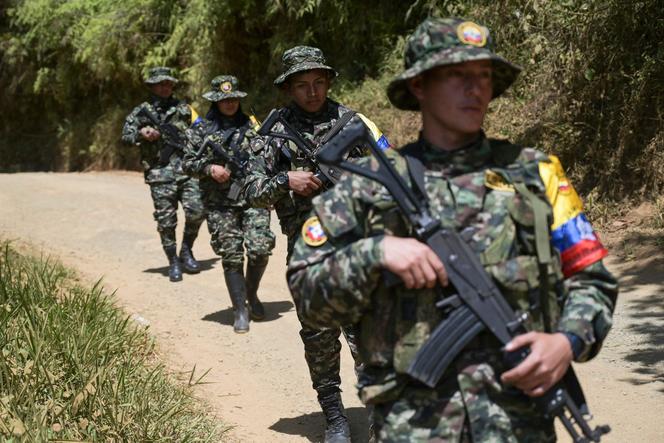


The government of Colombia and armed dissidents who broke off from what was once the nation's largest insurgency agreed to renew a ceasefire and join peace talks, the two sides announced Saturday, September 2.
A joint statement did not specify how soon the ceasefire would take effect but said peace talks would subsequently begin between the government and the dissidents of the Revolutionary Armed Forces of Colombia (FARC), an insurgency that laid down arms in 2016.
The truce "will aim to reduce confrontation and violence," emissaries of President Gustavo Petro and Ivan Mordisco, head of the Estado Mayor Central (EMC), comprising rebels who rejected the 2016 peace deal, said in the statement.
A previous ceasefire ended in May after Petro accused the rebel faction of executing four children and teenagers from the Murui Indigenous community in southern Colombia.
The four Murui minors were killed after defecting from a dissident faction of FARC called the Carolina Ramirez front, the country's human rights ombudsman said at the time.
Saturday's statement said the ceasefire would apply across the country with the aim of including "civil society in the peace process."
Delegates had been meeting since Thursday in the mountains of the southwest department of Cauca, in the first formal meeting between the government and the armed group, which profits from drug trafficking and illegal mining.
The peace process will be supervised by other countries – which were not specified – and international organizations such as the United Nations, the Organization of American States and the World Council of Churches, the statement said.
In a photograph released by the Office of the High Commissioner for Peace, its head, Danilo Rueda, is seen smiling with the official chief negotiator, Camilo Gonzalez Posso.
Colombia's Amazon plays host to numerous armed groups fighting over access to drug routes and other illegal commerce. The South American country continues to be plagued by violence despite the 2016 peace pact with the FARC that was meant to end decades of internal conflict.
Petro, Colombia's first-ever leftist president, is seeking to negotiate with the remaining armed groups in a quest for "total peace." Since November, he has been holding talks in Cuba, Mexico and Venezuela with the National Liberation Army (ELN), the largest guerrilla group following the disarmament of the FARC.
